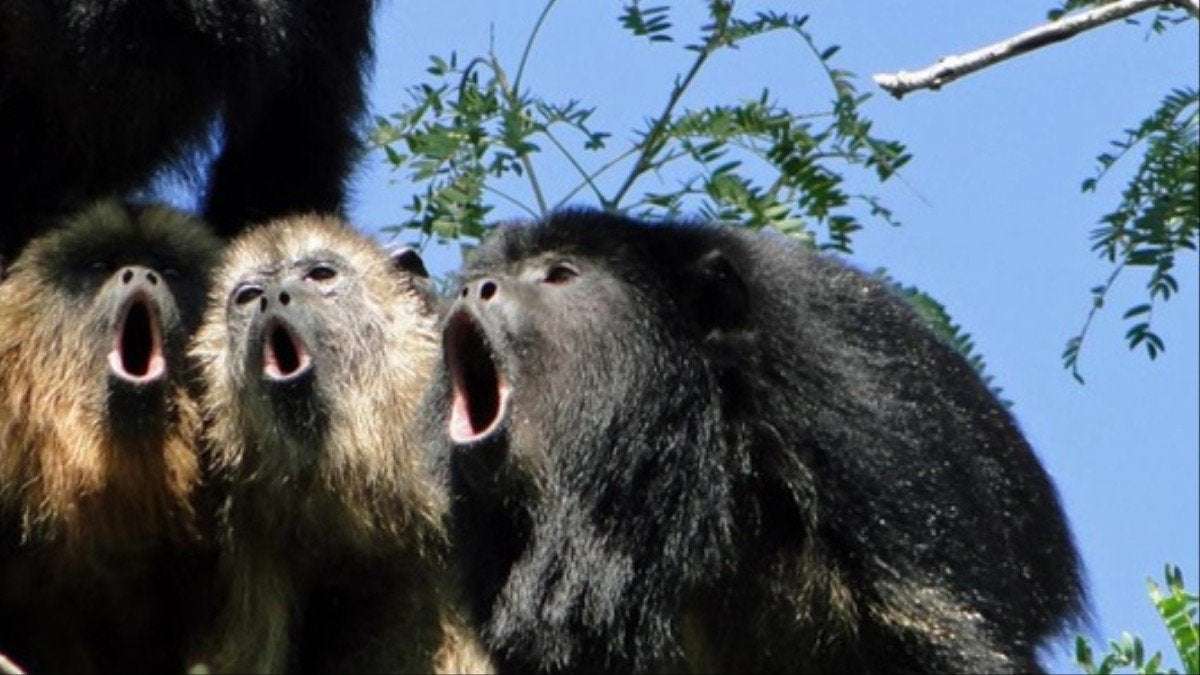Howler monkeys are the loudest land animals on Earth, capable of bellowing at volumes of 140 decibels, which is on the level of gunshots or firecrackers. Not surprisingly, male howlers frequently use this power to advertise their sexual fitness, catcalling females with their ear-splitting roars.
But in a beautiful twist of expectations, scientists have now found that the louder the monkey's calls, the smaller the monkey's balls. A team based out of Cambridge University came to this conclusion by comparing the size of dozens of monkeys' testes with the hyoid bones located in their voice boxes, which revealed a negative correlation between decibel levels and testicular endowment. The results are published today in the journal Current Biology.
"We found that males with larger hyoids, who can make lower-pitch vocalizations, have smaller testes and live in single-male groups with a harem of a few females," anthropologist Leslie Knapp, a senior author of the study, said in a statement. "Males with smaller hyoids live in multimale groups and have larger testes."
According to the team, this is the first evidence that there is a trade-off between vocal investment and sperm production, and it helps to explain why howler monkeys develop contrasting social structures.
As Knapp mentions above, a louder, small-balled monkey is more likely to develop a harem of females with whom he has exclusive breeding access. The quieter, well-endowed monkeys, on the other hand, tend to end up in larger groups containing many males and females that copulate freely with each other. In this non-exclusive group, males compete for paternity quite literally with their balls. The bigger a male's sperm count, the more he is to edge out all the other males that are mating with the same females.
In this way, howler monkeys have evolved two sexual strategies—calls versus balls—to the exclusion of each other. Loud monkeys need to secure exclusive access to females because they would have trouble keeping up with their big-balled counterparts, who are more likely to fertilize females due to larger sperm production. Quieter monkeys have less success attracting females with their bellows, but they are locked-and-loaded where it counts.
Naturally, Knapp warns against anthropomorphizing these findings, and she is completely right. There is a world of difference between howler monkeys and humans, especially with regard to sexual selection.

physical-vapor on November 26th, 2020 at 15:06 UTC »
MAN ILL TELL YOU, THIS IN NO WAY HITS ME IN THE FEELS. I HAVE A HUGE PENIS AND TESTICLES.
HairballTheory on November 26th, 2020 at 14:32 UTC »
Speak softly and carry a big stick
-SaC on November 26th, 2020 at 14:21 UTC »
That’s interesting.